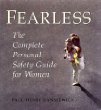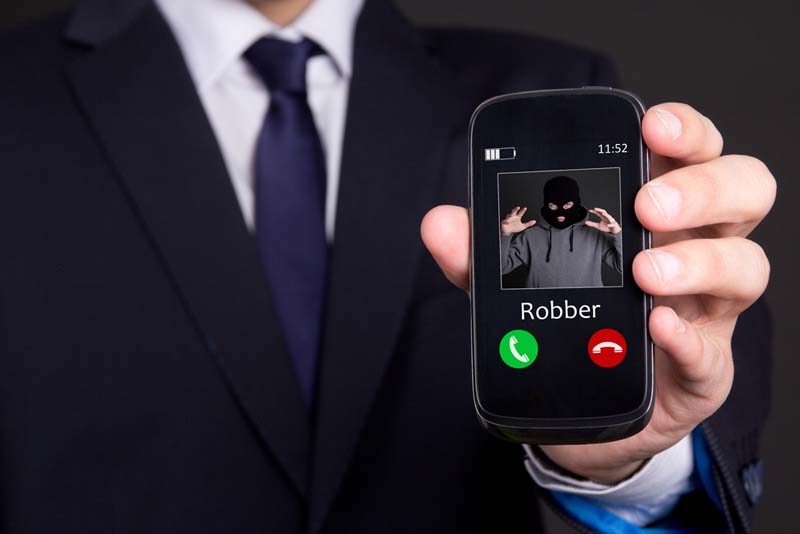 With so many people desperate to find an edge, entertainment business is a fertile ground for scammers and con artists who are amazingly adept at parting actors from their pennies.
With so many people desperate to find an edge, entertainment business is a fertile ground for scammers and con artists who are amazingly adept at parting actors from their pennies.
Here’s a sampling of scams to watch out for and what signs should be seen as red flags.
Online Scams
This is one of the most common scams that is difficult for new aspiring actors to recognize. Most of casting has moved online these days, which makes it even more difficult for actors to avoid these bad apples.
There are several scam-like websites that ask for a fee from actors to post their headshot and resume, but no one in the industry uses them. If you visit these websites, you’ll notice most of the people who post there don’t live in the city you’re trying to act, i.e. they don’t know any better.
RELATED: 5 Step Plan on How to Start an Acting Career
Film and television roles are cast based on headshots and resumes submitted through legit casting websites. Commercial casting also uses online systems since they move very fast and care more about looks, and when it comes to newbie actors, they use the same casting websites as film and TV projects do.
On top of that, there are some websites that are half legitimate. Those are not total scams but just a waste of money – they have set up systems for actors to submit themselves for specific projects posted on the site but there’s absolutely no return on the investment since casting directors do not use those services.
These “half-legit” casting websites usually include just a few projects on their lists, and the rest of them are poor 1st year student films, and those are scarce as well. Same goes for those background work websites. We’ve talked about that already – you don’t need it.
To avoid these scams, always use only legitimate websites. There are a few of these, and you don’t need any more. Here’s a list:
- Casting Call Pro – UK
- Spotlight – UK
- StarNow – UK
- Actors Access – US
- LA Casting – US
- BackStage – US
False Project Scams
 Never pay to be in a film! If you audition for something and later they tell you that you have the part, but that they’ve “discovered actors do a better job if they’re financially invested in the project,” or later say their “financing just fell through, and they need everyone to help pay for the project if it’s to be done,” walk away!
Never pay to be in a film! If you audition for something and later they tell you that you have the part, but that they’ve “discovered actors do a better job if they’re financially invested in the project,” or later say their “financing just fell through, and they need everyone to help pay for the project if it’s to be done,” walk away!
Even if the production have an office on a studio lot: these offices can be rented by anyone trying to put on a good face. This is a very common scam, usually in Los Angeles, so watch out because the people who pull it will make you believe they are genuine struggling filmmakers.
RELATED: Acting for Beginners 101
Remember that filmmakers and producers of the project are responsible for raising the money, not you, no matter how desperate you want the role. Even if you have been guaranteed that the project will happen and you’ll get material out of it for your reel, don’t do it unless the project was advertised as a showreel production class or something to that extent.
If the production has falsely advertised something like a directing class or showreel production class as a film project, you can always mark that casting call as “flagged” or message the editors and let them know. We need to work together to eliminate any kind of scams out there.
Manager Scams
Another very common way for scammers in the entertainment industry to part actors from their money is pretending to be legitimate managers who have just “discovered you.”
In the United States, it is illegal for agents and managers to ask for upfront payments of any kind, and it’s strongly regulated. Unfortunately, in the United Kingdom, the Equity union isn’t strong enough nor does the government care as much about their actors to look out for them more.
Nevertheless, remember that the only money managers make off of you should be from work that they get you, or that you got while being represented by them (10 percent for agents, 10 to 20 percent for managers).
A scam of this type you see often is for someone posing as a manager to ask for “submission fees” from new actors. They will claim that they’re taking a chance on you, spending their money on materials to submit you, and that you should help cover those costs while they get your career started.
This is wrong, no matter what real work the person may have done in the past. They may also ask you to attend their workshops to see if you’re what they are looking for; and those workshops are paid, of course.
Agent Scams
 This is the exact same model of “scammery” as those trying to pose as legitimate managers. These people will take on the title of a talent agent, and promise you the world since you “have a very marketable look, and they can’t believe you aren’t working actively yet.”
This is the exact same model of “scammery” as those trying to pose as legitimate managers. These people will take on the title of a talent agent, and promise you the world since you “have a very marketable look, and they can’t believe you aren’t working actively yet.”
No matter how many stories you’ve heard or read about actors and models being “discovered” by a talent scout and then becoming a super star, you should ignore most of the offers that sound too good to be true. First, those stories are often made up for PR reasons. Second, it’s extremely rare for someone to be “discovered” like this.
The way these scam agents approach this model is by giving you their number and a promise to sign you. Once you reach out to them, you’ll get more details about this “offer,” and it will most likely include some type of way for you to pay for something, either through upfront fees or otherwise.
RECOMMENDED: How to Get an Agent 101
If it’s not asking for upfront fees, then they will “recommend” you an acting class, or a workshop, or a headshot photographer whose services you must use, otherwise they will no sign you. This is your cue to leave the office and never come back. Also, report the “agent.”
Some of those so-called “talent agencies” that ask you for an upfront fee will actually sign you after you pay or attend the paid workshop, and will represent you. Sort of. However, all they do is submit you using the same casting call services that you yourself could have used sitting at home with your laptop on the table.
Contract Scams
 Contracts is a very sensitive area, and you must be especially on the lookout for any type of scams when it comes to putting your signature on a piece of paper with text on it.
Contracts is a very sensitive area, and you must be especially on the lookout for any type of scams when it comes to putting your signature on a piece of paper with text on it.
If you are signing any kind of contract, be sure to have a lawyer look it over before you do, no matter how legitimate the person seems, unless they already successfully represent someone you know well.
Dishonest agents and managers have been known to include ridiculous conditions in actors’ contracts, which unsuspecting (or naive) artists sign and agree to. If you’re serious about your new agent and manager, and you believe this will turn into a productive relationship, then it’s worth the extra few hundreds or so in attorneys’ fees to ensure that you don’t sign away your life.
No agent or manager should be offended by you asking to take a day or two to look over the contract and consult with a lawyer. Legitimate business people are aware of all the scams, and they are sensitive to that. If the person refuses and says that you have to sign on the spot, it’s time to run away from that office.
The more time you spend inside of this cruel industry, the more experience you will gain at recognizing all sorts of scams or people misrepresenting themselves; you will learn how to smell them from far away. Once you’re just starting and learning how to become an actor, stay very cautious and make sure your scam radar is functioning well.
Be Smart and Be Safe
Our articles may be irreverent sometimes, but I’m going to slip into mom mode for a minute. Be careful out there. It’s true what we constantly say here – actors have a raw deal.
Being scammed by a manager out of a few hundred isn’t the worst thing that can happen to poor actors in big cities either. We hear stories about young women murdered after being lured to a fake audition by a man posing as a producer and offering them an audition for a movie.
It all the big acting cities it happens often enough that our unions as starting to take precautions. In Los Angeles, SAG-AFTRA union has published a great handbook for every actor to go through, which also includes safety tips (download the handbook here). Unfortunately, UK does not have anything like that from Equity, but you can apply a lot of the tips anyway. Finally, just remember to use common sense; be cautious and skeptical.
I don’t want you to be alarmed, and I don’t – by any means – want you to live your life covered in fear. But I do want you to be very careful about the situations you put yourself in when desperately trying to book those parts through sketchy auditions, especially if you are a woman, submitting yourself to projects through online casting websites.
Here are some books and tips for actors (and particularly women) on how to stay safe.
 1. [easyazon_link identifier=”0747538352″ locale=”UK” tag=”ailbooks-21″]The Gift of Fear[/easyazon_link] by Gavin de Becker
1. [easyazon_link identifier=”0747538352″ locale=”UK” tag=”ailbooks-21″]The Gift of Fear[/easyazon_link] by Gavin de Becker
Gavin is an expert on violent behavior and spotting danger signals, and teaches you how to listen to your instincts. He’s also a coach to celebrities who deal with stalkers. You will learn a lot about how to practice intuition and spot danger zones and scenarios from afar.
 2. [easyazon_link identifier=”0802081126″ locale=”UK” tag=”ailbooks-21″]Fearless[/easyazon_link] by Paul Henry Danylewich
2. [easyazon_link identifier=”0802081126″ locale=”UK” tag=”ailbooks-21″]Fearless[/easyazon_link] by Paul Henry Danylewich
This book is aimed mostly at women. It contains simple self-defense techniques that can be applied in everyday life, as well as tons of tips on how to avoid situations so that you wouldn’t even need to use any self-defense stuff in the first place.
RELATED: Self-Taped Auditions & 8 Tips on How To Do a Self-Tape at Home
Never Let Your Guard Down
Here are some common sense tips to always keep in mind, mostly pertaining to actors and auditions:
- You should never be alone with one other person when auditioning or shooting. If you show up and it’s just the “director,” leave. Even if he seems like a nice harmless guy, don’t take the risk. It’s obviously a bad project not worth your time if he doesn’t have even one person helping out.
- You should never audition at someone’s house or apartment. Filmmakers know this golden rule, and there are free or very cheap spaces they can get around the city, so they should be using those. Occasionally, such residential auditions will be safe, but don’t take unnecessary risks. If you go to one, leave if there are not several people there conducting the audition, signs outside the apartment entrance, other actors and so forth. Avoid hotels at all costs.
- Be wary if you are auditioning in an isolated location like a warehouse in an industrial park. Leave if you feel scared or awkward; your instincts are probably right. That’s why it’s handy to have a smartphone with GPS and always-on Wi-Fi/3G/4LTE; and before you leave home, make sure you are going to a safe area. A project with a bad script, production values and sound is not worth the risk to you.
- Avoid nudity in auditions. You’ll hear this everywhere, but just in case you haven’t heard it yet: there should never be any stripping during an audition, even if nudity will be involved in the role. Every audition also has a strict no kissing and no inappropriate contact unwritten rule, with nobody. Sometimes you will end up kissing the other actor in the scene at callbacks, but that is your choice and you should leave if they pressure you to do more than you feel comfortable with. You should not have to “test out” your chemistry by doing that. Never. The actual contact should only take place after you’ve got the part and are legitimately performing.
- Be skeptical of anybody who approaches you in this business. If someone approaches you – at a pub, store, in a restaurant, on the street – claiming to be a successful director/producer/executive or other member of the “industry,” but is not someone you or anyone else knows, do not meet up with them alone until you have verified their credentials and/or place of work. Not to alarm you, but other women have gone missing with men who misled them in this way; men are very skillful at name-dropping and assuming industry attitude.
- When approached, always make sure to verify their credentials and try to re-schedule. Ask for that person’s business card (if they are what they claim to be, they’re going to have one). If you have any suspicions or concerns at all, investigate the person online; call up the agency or company they are supposed to be working for to find out if that’s really true. Also, try and bring a friend with you to your first meetings. Make sure that your family and friends know whenever you have a meeting of this type, and where are going for it.






